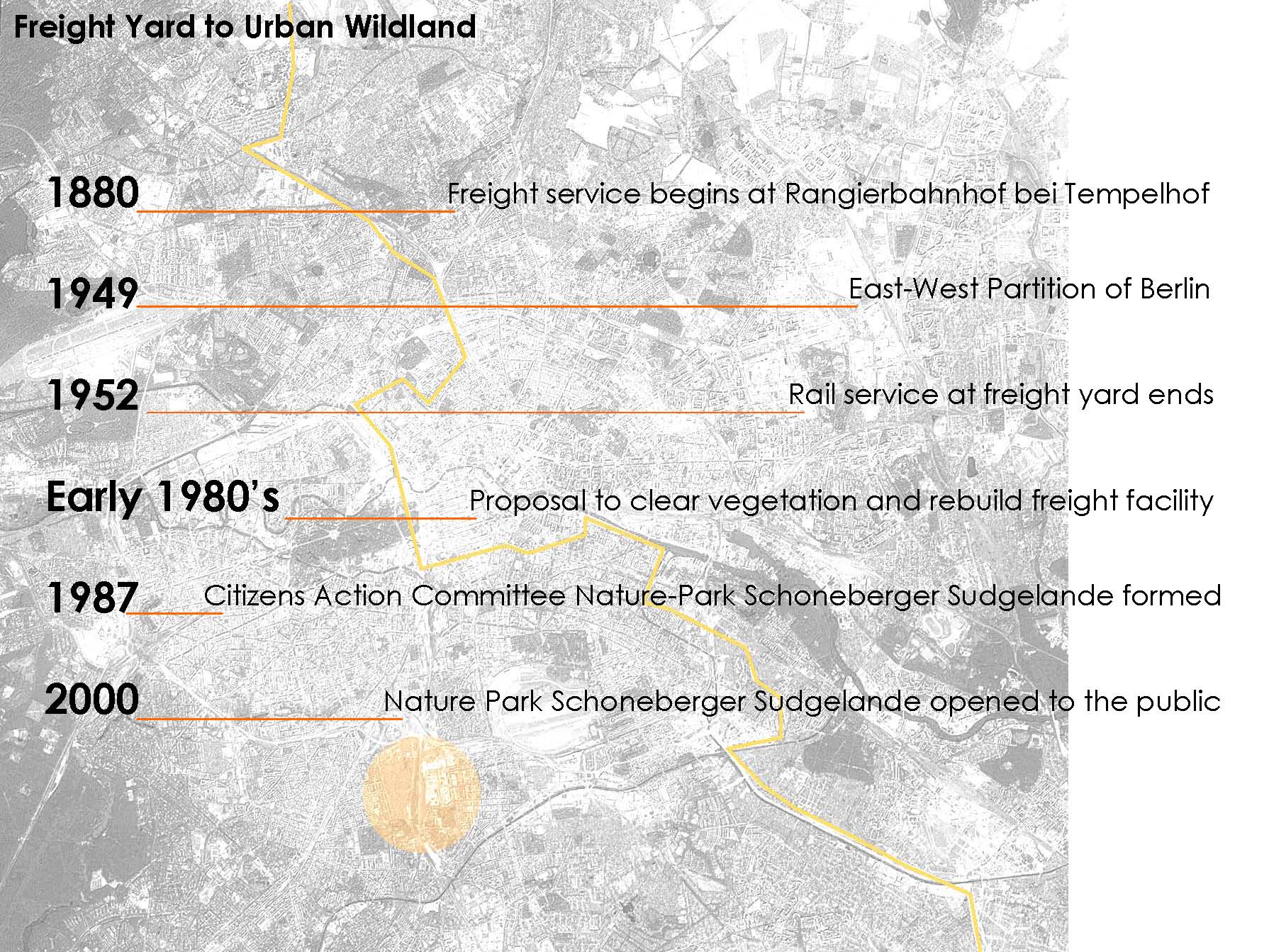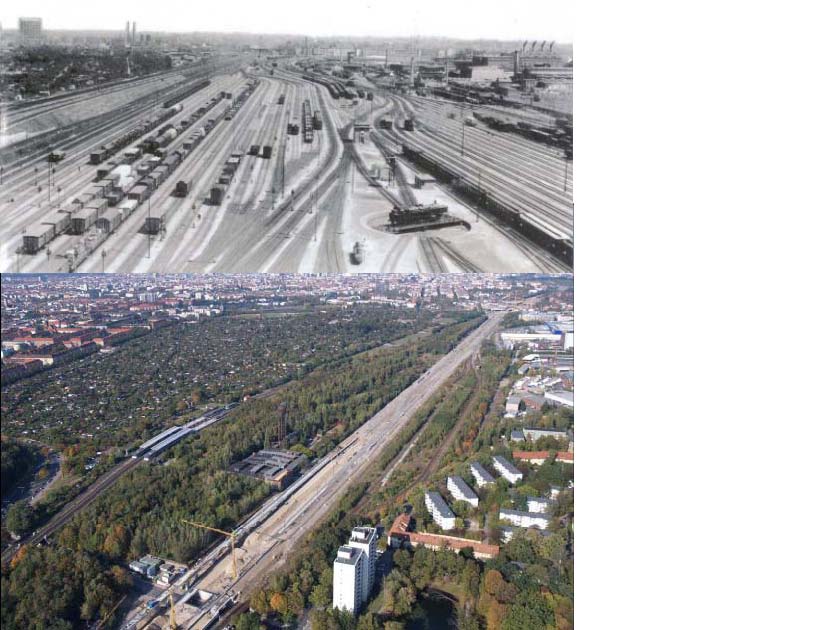Sudgelande Nature Park_history |
The transition from bustling freight yard to urban wildland at the Sudgelande site was largely a function of the spatial politics that shaped the city of Berlin in the years following World War II. Following the partition of the city and the construction of the Berlin wall, much of the rail infrastructure and many of the stations in both the eastern and western portions of the city became obsolete. In East Berlin, some of the West Berlin rail lines were allowed to continue operating, but were the trains were prohibited from stopping at the stations in the eastern territories. Out of this odd political arrangement was born the phenomena of the Geisterbahnhof or "Ghost Station." These stations were frozen in time for decades, patrolled by police to ensure that no one came or went from the western trains as they passed through. The Rangierbahnof bei Tempelhof was among the rail installations on the West Berlin side of the wall that was rendered usedless when the rail service feeding it was cut off by the partition of the city. After sitting idle for three decades, a proposal was put forth in the early 1980's to clear the site and resume freight services. In 1987, the Citizens Action Committee Nature-Park Schoneberger Sudgelande was formed to advocate on behalf of the continued preservation of the site as an ecological park. The Citizens Action Committe's efforts were successful and the Nature Park opened on the site in 2000. |
 |
 |
Above_the Rangierbahnof bei Tempelhof in 1934 Below_the Schoneberger Sudgelande Nature-Park on the same site in 2000 (Source: [Top: Thierfelder, Holle. "Green Berlin," http://www.urban-landscape.net/vienna_seminar/docs/conference_presentations/Green%20Berlin.pdf, Accessed 1/10/08]; [Bottom: Grun Berlin: Park und Garten, Park Information, http://www.gruen-berlin.de/suedEN/info.php, Accessed 1/10/08]) |
| Sources and Further Information |
Allianz Umweltstiftung _ http://www.allianz-umweltstiftung.de/projekte_uebersicht/gruen_in_staedten/suedgelaende/index.html |
"Natur-Park Sudgelande: Linking Conservation and Recreation in an abandoned railyard in Berlin." Ingo Kowarik, Andreas Langer. in in Wild Urban Woodlands: New Perspectives on Urban Forestry. Kowarik, Ingo, and Stefan Korner, eds. Berlin: Springer, 2005. |